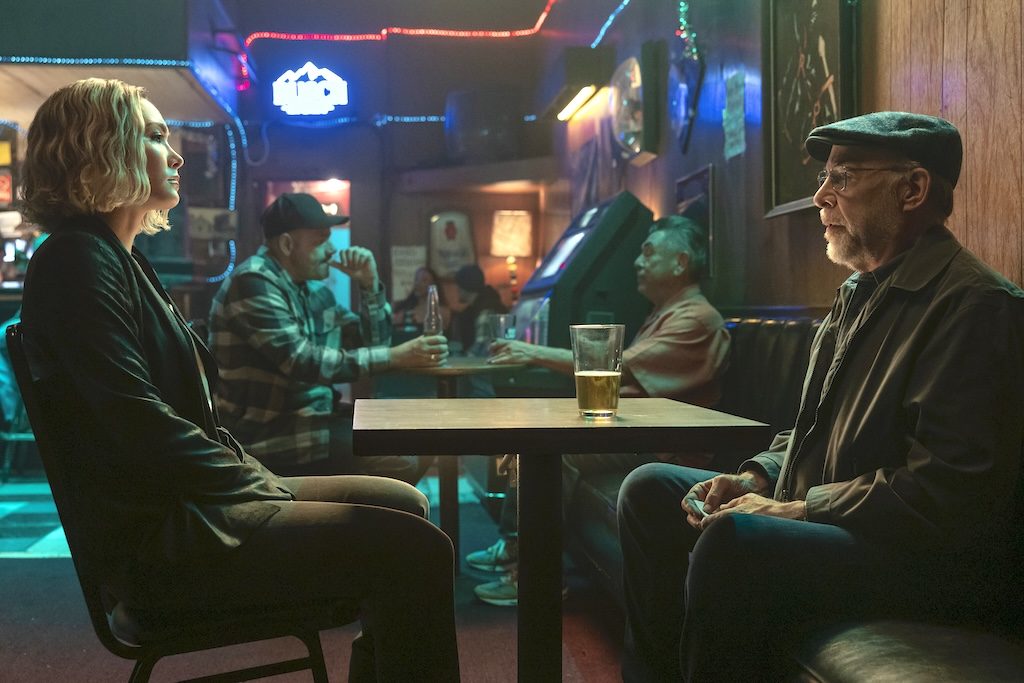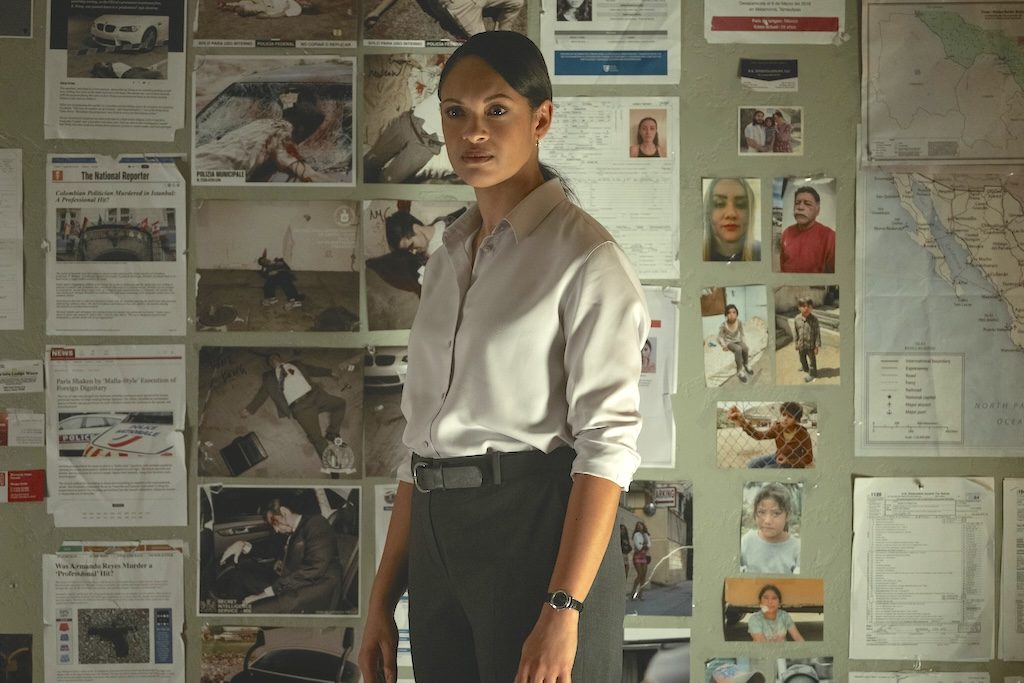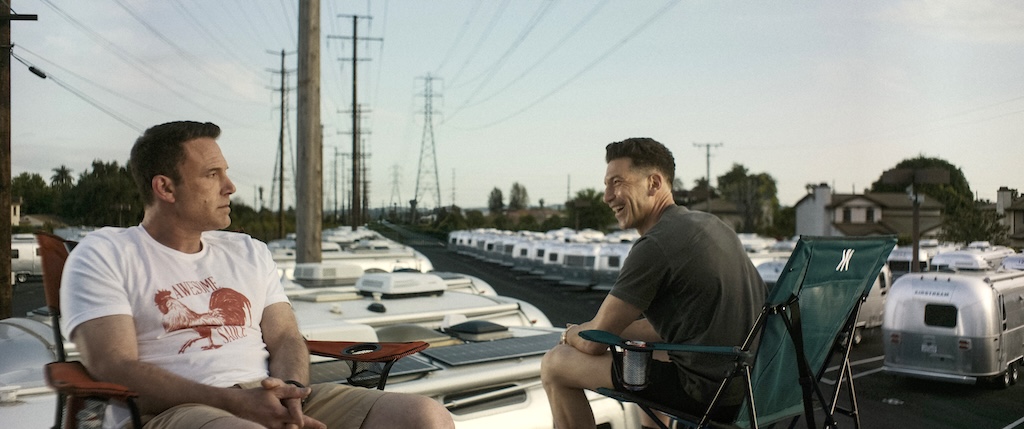The tantalizing concept of an autistic accountant who utilizes his supercomputer-like mathematical skills to establish links, relationships, patterns, and causality with lightning speed is the basis for Christian “Chris” Wolff (Ben Affleck) in The Accountant. The key to constructing a character on the spectrum is to not sensationalize or pity them. The Accountant isn’t a masterclass in neurodivergence. For Chris Wolff, it’s his unique superpower, often at the expense of his awkward social and communication skills.
His morality lives on the outskirts as he offers his superior skills to shadowy organizations. Fine, he’s a money launderer.
First introduced to the screen in 2016, the prospect of a worthy sequel to The Accountant has been brewing since then between Ben Affleck, screenwriter Bill Dubuque, and director Gavin O’Connor. The story is proposed to be a trilogy.
In The Accountant 2, the filmmakers chose to focus on Chris’ fraught relationship with his wayward younger brother Braxton (Jon Bernthal) who owns and operates a “security firm” for eclectic clients (he can’t really write “assassin” on his business license). They genuinely love each other and their journey reflects that. Both are headstrong and can’t be in each other’s company for too long.
Their constant clashes often land with a comedic and bonkers thud. “No-one was trying to be funny,” offers Jon Bernthal.
Nine years after the original film, the mental mind lab of Chris’ over-analytical mind returns.
Following the death of Roy King (J.K. Simmons), former the Head Of The Treasury Financial Crimes Bureau, by unknown assassins, Wolff is coaxed out of retirement by U.S. Treasury Deputy Director Marybeth Medina (Cynthia Addai-Robinson) to find the killers of his acquaintance as a favor of sorts.

Anais (Daniella Pineda) and Ray King (J.K. Simmons) Photo by Warrick Page/ Prime Amazon Content Services LLC
Chris reaches out to his “estranged and highly lethal” brother Braxton to help him solve the case. But the case isn’t as cut and dry as alleged criminals trying to snuff out a Federal investigation against them. Amid a sea of bloodshed, the Wolff brothers embark on their mission to uncover a network of ruthless criminals engaged in human trafficking.
The Accountant 2 isn’t so much a “put ’em behind bars” crime film as it is a story of brothers bonding as their relationship deepens. It’s a character study wrapped up in a genre film.
A Story Of Evolving Brotherhood
Despite the murky wanters under the Wolff brothers’ bridge, The Accountant 2 side-steps the good/ bad, older/younger brother hustle. Both have the same parents, a similar upbringing and similar DNA. Both have reacted differently to their hardened, ex-military father. “Trauma is the crux of what’s bothering them,” adds Ben Affleck.
In spite of their odd couple theatrics, the two are strikingly loyal. They are an agonistic/ antagonistic. Whatever the situation, “they’re always there for each other and have each other’s backs.”
Audiences learn more about Braxtron in this film and his emotional wounds. The film is more than reprising a popular character from the first movie. He needed a reason to exist and had to pursue a different journey with his brother. It had to be personal, fun, and entertaining.
Chris and Braxton are united by not being strictly law-abiding citizens. They are more “law-abiding adjacent” which often translates as they do what they want.

Marybeth Medina (Cynthia Addai-Robinson) Photo by Warrick Page/ Prime Amazon Content Services LLC
Braxton is an on the move contract killer who lives in hotel rooms and Chris launders money, He often uses unorthodox methods to obtain information. His laundry’s always clean.
Chris has great difficulty in organizing and expressing his feelings in non-numerical format, while Braxton says exactly how he feels. His erratic nature reflects their shared trauma from their childhoods.
“Chris likes order and design, and simplicity and routine. His brother disrupts that, which in some ways is good for him,” says screenwriter Bill Dubuque.
Chris hasn’t communicated with Braxton in years – a fact that deeply hurts Braxton. Chris calls him out of the blue to help him solve the murder case. It’s not that Chris hasn’t wanted to reach out, nor has pride prevented him from doing so. Chris can’t identify, process, and express his emotions, thoughts and feelings. Every decision requires a mind-numbing, comprehensive calculus about outcome probability – from deciding what to wear to planning the perfect phone call. Braxton understands this and answers his brother’s call for help. He only has one kid brother to take care of.
Chris may be awkward, but he’s acutely self-aware. He’s feeling a little lonesome and would even welcome a romantic liaison, but he doesn’t know how. With the help of some line dancing and his brother to spur him on, anything’s possible.
The “not by the book” brothers test Marybeth Medina, who unlike Chris and Brax, does everything “by the book.” What did she expect? Perceptively, she sees these chalk and cheese brothers as “two sides of the same coin.” Medina is caught in the tug of war between the even more traditional law enforcement practices and the mayhem of the Wolff brothers. “They’re crazy, but they’re challenging my view of how to serve justice,” shares Medina.
